After many years of keeping birds, Yorkshire canary champion BRIAN KEENAN has deeply pondered the pros and cons of wood, plastic and wire as materials, and the best ways to arrange the components of the cage. Here is his summary.

CANARIES
EVERY now and then, fanciers refresh their bird rooms and invest in new cages with new layouts. Over the years I have looked into several cage designs, which have included both manufactured and self-build cages. There is a wide range of ready-made units but you have to accept someone else’s design ideas. These can be purchased as self-assembly cages or as pre-built units, and are available in wood, plastic or as all-wire formats.
I have investigated wire cages several times, but whenever I find people using them I generally find they have added wooden side panels or trays over the all-wire floor grids to make the cages more acceptable to their birds. Choosing to adapt these cages hardly seems appropriate, given the high price we pay for such cages in the UK. The very same cages are often available overseas at greatly reduced rates for those who take the trouble to find them. Many wire cages are now collapsible, so buying in bulk is feasible and keeps transport costs to a minimum.
Wire cages tend to follow the continental practice of placing seed and water receptacles at a higher level, rather than on the bottom rail, as we tend to prefer in the UK. Hygienically, the higher position may be best, but it does tend to obscure your view of your birds when they are in their stock cages. To me, it’s another downside.
A further issue with wire cages is moisture. How many wire cage fronts rust after only a year or so, given their direct exposure to water from drinkers or baths, or from spillage from both? I changed to plastic cage fronts many years ago because of this problem and have never regretted my decision.
هذه القصة مأخوذة من طبعة February 22,2017 من Cage & Aviary Birds.
ابدأ النسخة التجريبية المجانية من Magzter GOLD لمدة 7 أيام للوصول إلى آلاف القصص المتميزة المنسقة وأكثر من 9,000 مجلة وصحيفة.
بالفعل مشترك ? تسجيل الدخول
هذه القصة مأخوذة من طبعة February 22,2017 من Cage & Aviary Birds.
ابدأ النسخة التجريبية المجانية من Magzter GOLD لمدة 7 أيام للوصول إلى آلاف القصص المتميزة المنسقة وأكثر من 9,000 مجلة وصحيفة.
بالفعل مشترك? تسجيل الدخول
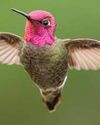
The World's Best-Known Hummingbird?
Intensively studied, the gem-like Anna’s hummingbird is a welcome visitor to the gardens of America’s most populous state: California. Bill Naylor investigates its life history
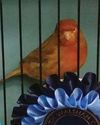
The charm of the English Cinnamon
Despite its long and complicated history, the true Cinnamon canary is still with us – in the hands of a tiny group of breeders. DONALD SKINNER-REID reckons it deserves wider appreciation
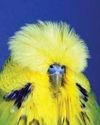
Spangles: a personal overview
FRED WRIGHT relates a budgie story of over-exploitation, consequent problems and abundant potential for the future

New converts to old breeds
Old and rare canaries have a reputation for adding fresh interest and challenge to the hobby. PETE HOOK and NICK JOY agree, and explain the birds’ charm to Dave Brown

Themed aviaries are a hit with the public at annual Stafford show
DECORATIVE AVIARY DISPLAYS from a CBS and an online bird keeping advice group were voted in the top three by visitors for the inaugural Stafford Aviary Competition.
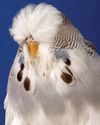
Pieds with potential
More than just a lesser variety, the dominant pied will introduce challenge and change into most studs, reckons CLIVE WAKEMAN. Here he discusses pairings to try and others to avoid
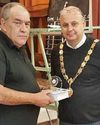
Club News
Welcome to the club and show pages – the bit that’s all about you Results: convention, specialist & rare and Breeder of the Year
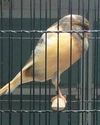
Canaries Month by Month:
With Christmas around the corner, BRIAN KEENAN is well into his winter programme, and reckons he might deserve a nice outcross
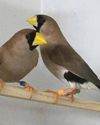
Smart Choice, Docile Nature
Dave Brown welcomes the masked grassfinch to his birdroom and shares advice on this lovely Australian species
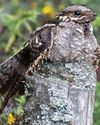
The truth about the ‘flying toad'
Odd local names and weird superstitions can’t hide the beauty and elegance of the nightjar, a species that has made a fascinating subject in a few zoo collections, reveals BILL NAYLOR